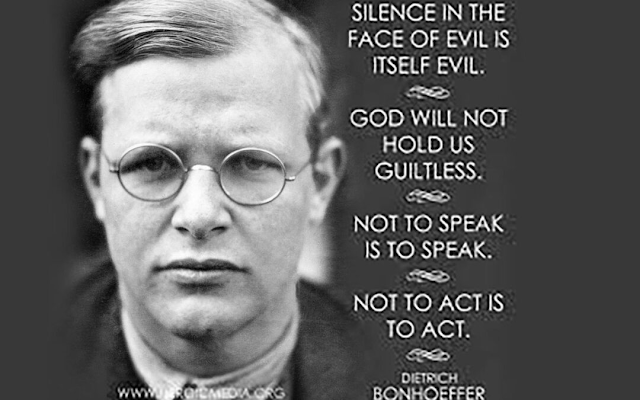The Silent Witness: Why People Remain Silent When Political Evil Takes Root
The annals of history are replete with instances where grave injustices and overt acts of cruelty have unfolded, often with a large segment of the populace remaining conspicuously silent. From the rise of totalitarian regimes to the systematic marginalization of communities, the question persistently arises: why do so many stand by, watching evil unfurl without intervention or vocal opposition? This phenomenon is not merely a failure of individual courage but is deeply rooted in complex political, psychological, and social dynamics that can render even the most egregious acts seemingly palatable or too daunting to confront.
One of the most potent deterrents to speaking out against political evil is the omnipresent specter of fear and reprisal. In authoritarian or highly repressive political systems, the cost of dissent can be catastrophically high. Individuals may face imprisonment, torture, economic ruin, or even death for themselves or their loved ones. The state, through its vast apparatus of surveillance and coercion, cultivates an atmosphere of terror that effectively stifles any nascent voice of opposition. This fear is not always a direct threat but can be a subtle, pervasive anxiety about job loss, social ostracization, or the inability to access essential services, all of which are controlled or influenced by the ruling power. The perceived risk often outweighs the perceived benefit of speaking truth to power, leading to a calculated, if agonizing, silence.
Furthermore, the process of normalization and desensitization plays a critical role. Evil rarely manifests overnight in its most extreme form. Instead, it often creeps in incrementally, a series of small erosions of rights, a gradual tightening of control, or a subtle dehumanization of a targeted group. Each step, on its own, might not seem egregious enough to warrant widespread outcry. As these actions accumulate, what was once shocking becomes commonplace, and what was once unacceptable becomes the new norm. Constant exposure to state-sponsored propaganda, the manipulation of information, and the repeated demonization of "others" can dull moral sensibilities, making it increasingly difficult for individuals to recognize the scale of the evil unfolding or to muster the moral indignation required for protest.
The psychological phenomenon of diffusion of responsibility, akin to the bystander effect in social psychology, also translates powerfully into the political sphere. When many people witness an injustice, the individual burden of action can feel diluted. Each person might assume that someone else – a leader, an organization, or a larger group – will step forward to challenge the wrong. This collective inaction creates a dangerous vacuum, where no one feels solely responsible for addressing the problem, and thus, no one does. This is often exacerbated by a lack of clear leadership or an organized opposition that can galvanize collective action, leaving individuals feeling isolated and ineffective in their potential dissent.
Moreover, a strong sense of self-preservation and political apathy can compel silence. For many, maintaining their personal comfort, economic stability, and daily routines takes precedence over engaging in risky political activism. The perception that political change is futile, that one's voice will not make a difference, or that the system is too entrenched to be challenged, can lead to a pervasive sense of powerlessness. This apathy is not necessarily a malicious indifference but often stems from a genuine belief that individual action is insufficient to alter the course of events, leading people to withdraw into their private lives and endure rather than resist.
Finally, the sophisticated use of propaganda and narrative control by political actors can profoundly influence public perception and silence dissent. Regimes adept at manipulation can create alternative realities, portraying their actions as necessary for national security, stability, or the greater good. They might cast those who speak out as traitors, foreign agents, or dangerous radicals, thereby delegitimizing their concerns and isolating potential dissidents. By controlling the flow of information and shaping public discourse, they can effectively blind segments of the population to the true nature of the evil being perpetrated or convince them that it is, in fact, justifiable.
In conclusion, the silence that often accompanies political evil is a multifaceted phenomenon, born of fear, normalized through incremental changes, diffused by collective inaction, and reinforced by self-preservation and manipulative narratives. It is a complex interplay of individual psychology and systemic political pressures that underscores the fragile nature of democratic freedoms and the constant vigilance required to protect them from the creeping shadows of injustice.





